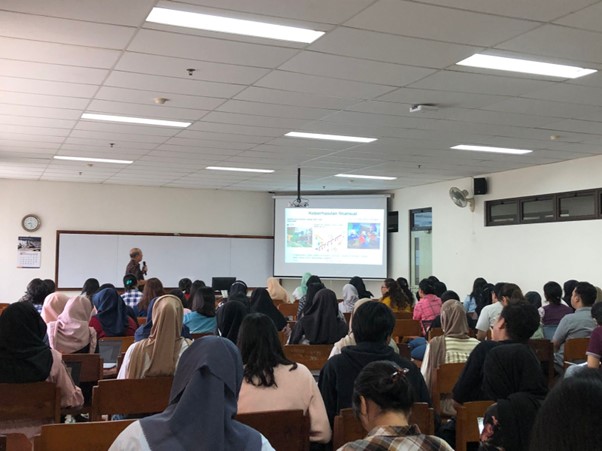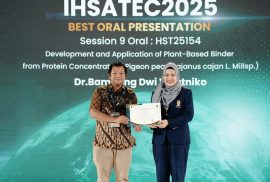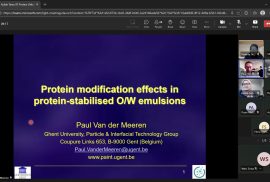
On Tuesday, May 14, 2024, a guest lecture on entrepreneurship was held with Ir. Erista Adisetya, M.M. as the speaker. The theme was “Entrepreneurial Character”, aimed at providing deeper insight into the characteristics an entrepreneur must possess.
An entrepreneur’s income can be derived from two main types: Active Income and Passive Income. Active Income refers to income earned from active work, such as being an employee, selling skills, or working independently in specialized professions like doctors or accountants. Passive Income is generated from business or investments, such as owning a company or investing in capital and money markets.
Using tools such as SWOT analysis (Strengths, Weaknesses, Opportunities, Threats) and the Personal Business Model Canvas, an entrepreneur must prepare key elements, such as knowledge, strength, competency, and endurance. The main motivations should include a strong passion for the field, greater career potential, the freedom to direct their venture, and a focus on passion realization. Entrepreneurs are also driven by the desire to create a legacy and generate positive social impact.
There are two types of entrepreneurs:
- Structural Entrepreneurship, which refers to a well-established and organized business structure, and
- Functional Entrepreneurship which focuses on specific business functions such as product development, human resource recruitment, and performance management.
 To start a business, several steps must be taken, including developing passion, defining a vision, creating a business concept, designing a product concept, and building a business plan. Additionally, it’s necessary to establish an effective system that encompasses product development, HR recruitment and development, and efficient business processes. The entrepreneurial mindset should include the ability to turn burdens into profit opportunities, maintain customer satisfaction, and achieve success through persistent effort.
To start a business, several steps must be taken, including developing passion, defining a vision, creating a business concept, designing a product concept, and building a business plan. Additionally, it’s necessary to establish an effective system that encompasses product development, HR recruitment and development, and efficient business processes. The entrepreneurial mindset should include the ability to turn burdens into profit opportunities, maintain customer satisfaction, and achieve success through persistent effort.
The material discussed in this guest lecture is closely aligned with several Sustainable Development Goals (SDGs):
- SDG 1 – No Poverty: Promoting entrepreneurship can create jobs and reduce poverty.
- SDG 8 – Decent Work and Economic Growth: Entrepreneurship supports inclusive and sustainable economic growth and decent job creation.
- SDG 9 – Industry, Innovation, and Infrastructure: Building business systems and infrastructure supports innovation and sustainable industry.
- SDG 12 – Responsible Consumption and Production: Responsible entrepreneurship fosters sustainable consumption and production patterns.
- SDG 17 – Partnerships for the Goals: Collaboration between entrepreneurs, government, and society strengthens partnerships for achieving the SDGs.
The entrepreneurial characteristics discussed in this guest lecture are not only essential for individual business success but also have a broader impact on achieving the SDGs. By promoting innovative, sustainable, and responsible entrepreneurship, it is hoped that this will contribute to inclusive and sustainable economic development, reduce poverty, and improve overall community well-being.




